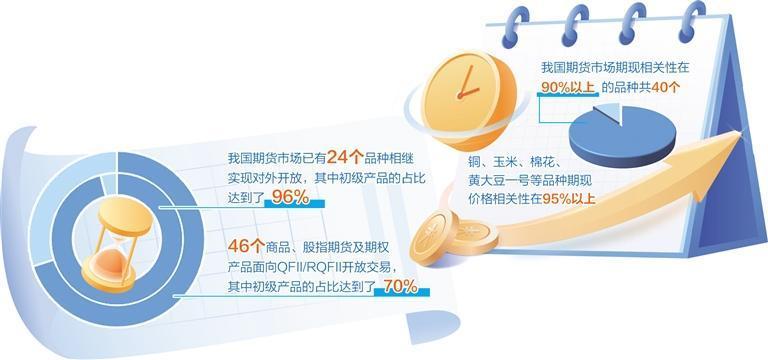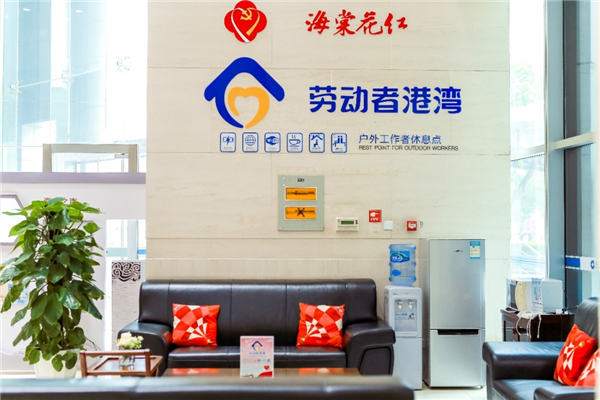China accelerates the construction of a modern industrial system, which helps stabilize the global supply chain
You may also be interested in:
-
China's accelerated construction of a modern industrial system will help stabilize -
State Administration of Foreign Exchange: China's foreign exchange market in August is expected to -
The proportion of financing deposits has been lowered for one week: financing customers have continuously increased -
[Digital economy] Top 500 private enterprises have large size and high quality -
Domestic demand continues to expand, employment and price situation keeps improving -
Seven "Shanghai Core" New Rice Varieties Released -
Mingchen Health: Your question was answered by the company in time yesterday -
In August, the new energy created the second generation sales ranking: the decline is hard to hide
Today's Hot Spots
Recommended for you
Do you feel these changes in auto insurance
Futures market helps to build a new development pattern
CCB Suzhou builds a "warm harbor" around the people with practical actions
more
-
The State Administration of Market Supervision: Strictly investigate and deal with violations of laws and regulations in the food safety field and effectively prevent them -
Floor washer becomes a new favorite of household appliances consumption Industry: industry concentration will increase -
Liu Weiping: Deepen international exchanges and seek common development of water resources protection -
Cao Junjie: Innovating the Regional Modern Agricultural Development Model and Accelerating the Process of Agricultural Modernization -
Xinhua Insurance fell 7.75%, net sales of institutions reached 305 million yuan -
Net purchase of 72.22 million yuan by Huaying Science and Technology trading institutions -
IT Navigation plans to acquire the equity of Aerospace New Century in cash, which is expected to generate a large amount of goodwill -
Huafeng shareholder Guangdong Kechuang reduced 1.893 million shares in half a month, accounting for 1%
more
-
Dalian Thermoelectric plans to purchase Kanghui New Materials for 10.15 billion yuan and raise no more than 3 billion yuan -
Huiyun Titanium's net profit in the first half of the year dropped by 79%, and the two raised funds in 2020 totaled 854 million yuan -
In the first half of the year, Fuliwang deducted 78% of non capital and raised 1.48 billion yuan in total in 2020 -
Penghua Zhongzheng Cloud Computing and Big Data theme increased by 24% within the year -
Xuanyuan Private Placement - Xuanyuan Kuangshi 1000 Index increased and dropped 7.63% this year -
The termination of Huatong cable does not exceed 800 million yuan of convertible bonds, which will be raised by 380 million yuan in 2021 -
Shanghai Pharmaceutical: controlling shareholder Shanghai Real Estate Group increased 100000 H shares of the company -
The Dragon Tiger List of Redway: the top 5 net sales of 5 institutions totaled 92.75 million yuan
Ranking
-
Seven "Shanghai Core" New Rice Varieties Released -
How can I back up iTunes to my phone? How can I change the path of the backup file of iTunes? -
How can I tell if the iPhone is a refurbished machine? -
How much is the Apple 12 resolution? -
The new generation's home life conceals "longevity". See how Dyson can make us rest at ease -
Hot news: how KFC, the "good neighbor" of the community, makes "small customers" fall in love with reading -
AGM G2 GT was officially released, and the first 500 meter thermal imaging was launched, with the price starting from 5999 yuan -
Looking forward to CSL: Hainiu ushers in its new home debut Guo'anchong's first win of the season -
Chinese Stars | Pursue Dreams · Deep Space _ Current Scroll -
Did you hear? Do mobile cloud brands need to be refreshed?
Recent updates
-
Seven "Shanghai Core" New Rice Varieties Released -
How can I back up iTunes to my phone? How can I change the path of the backup file of iTunes? -
How can I tell if the iPhone is a refurbished machine? -
How much is the Apple 12 resolution? -
The new generation's home life conceals "longevity". See how Dyson can make us rest at ease -
Hot news: how KFC, the "good neighbor" of the community, makes "small customers" fall in love with reading -
AGM G2 GT was officially released, and the first 500 meter thermal imaging was launched, with the price starting from 5999 yuan -
Looking forward to CSL: Hainiu ushers in its new home debut Guo'anchong's first win of the season -
Chinese Stars | Pursue Dreams · Deep Space _ Current Scroll -
Did you hear? Do mobile cloud brands need to be refreshed?
this Daily news
-
International perspective: strengthen innovative cooperation and promote the transformation and upgrading of the global automobile industry -
Do you feel these changes in auto insurance -
Futures market helps to build a new development pattern -
CCB Suzhou builds a "warm harbor" around the people with practical actions -
Bank of Communications and iFLYTEK Artificial Intelligence Joint Innovation Laboratory officially unveiled! -
The innovation of digital economy drives the creation of new growth points for urban economic development -
The Enterprise Standardization Promotion Measures will be officially implemented in 2024 -
2023 National Cyber Security Publicity Week Opens in Fuzhou -
Follow up to "Group Sailing": Close "Chain" in Win win Cooperation -
The 18th World Water Resources Conference opened in Beijing, and many experts discussed water management strategies





